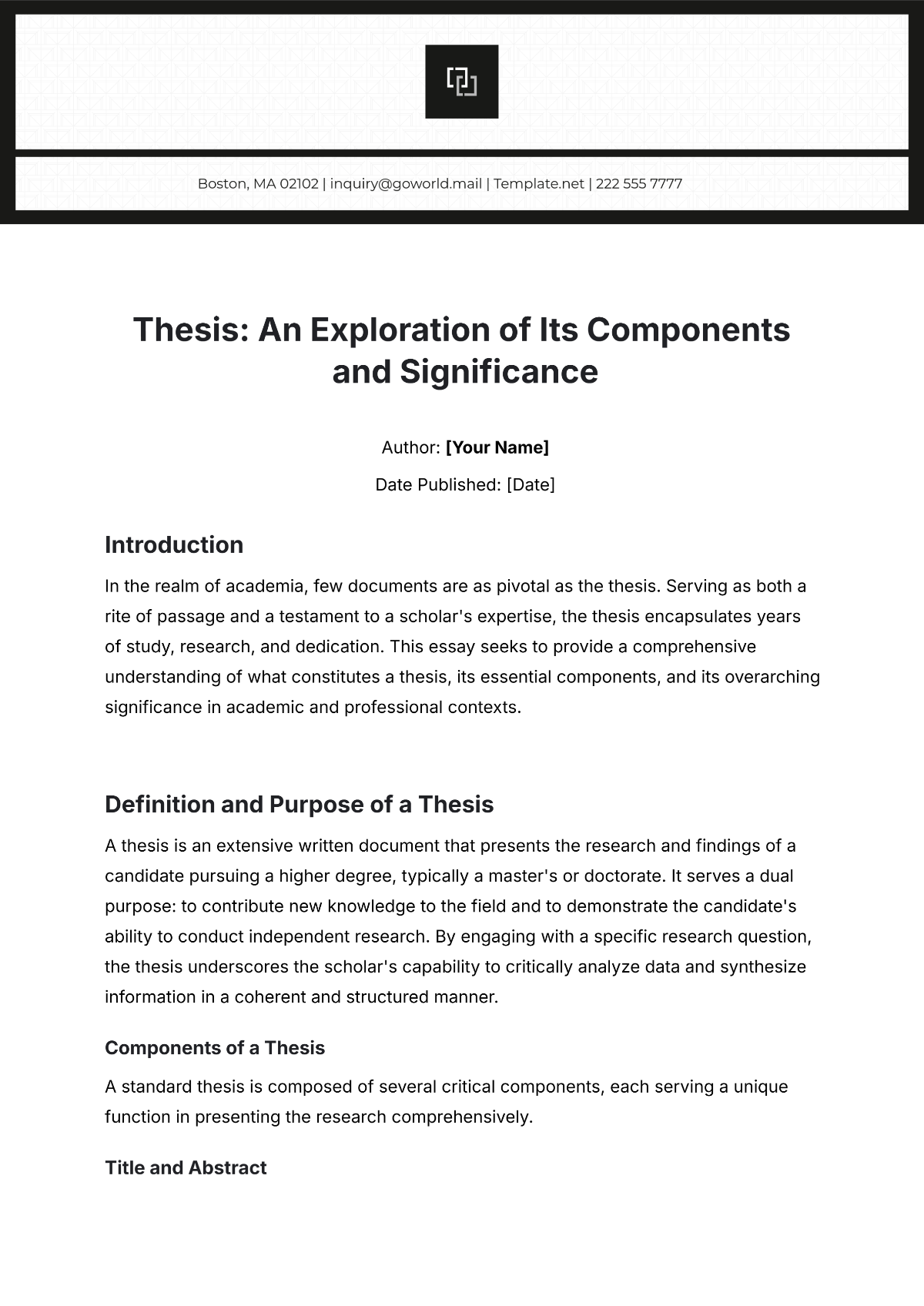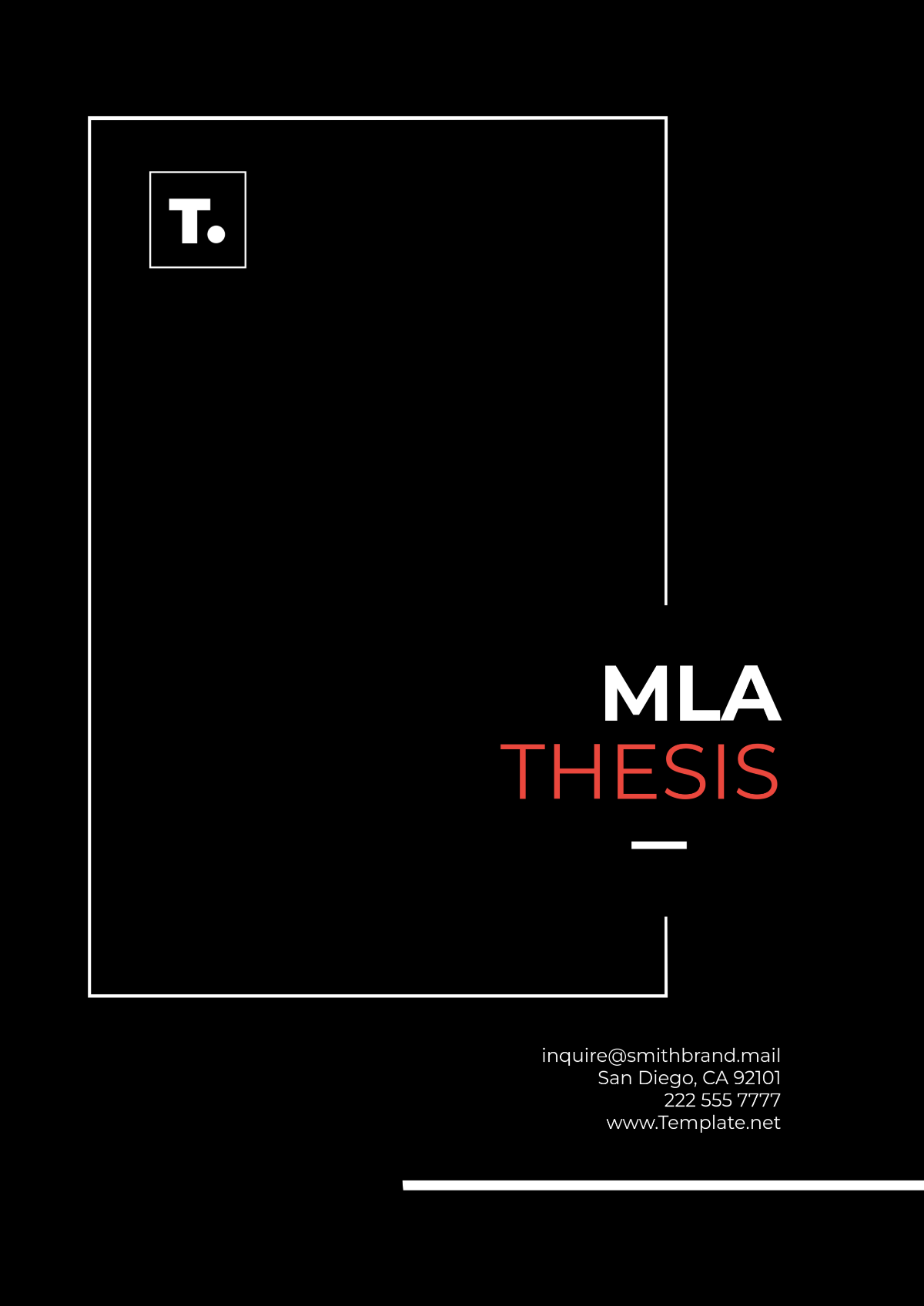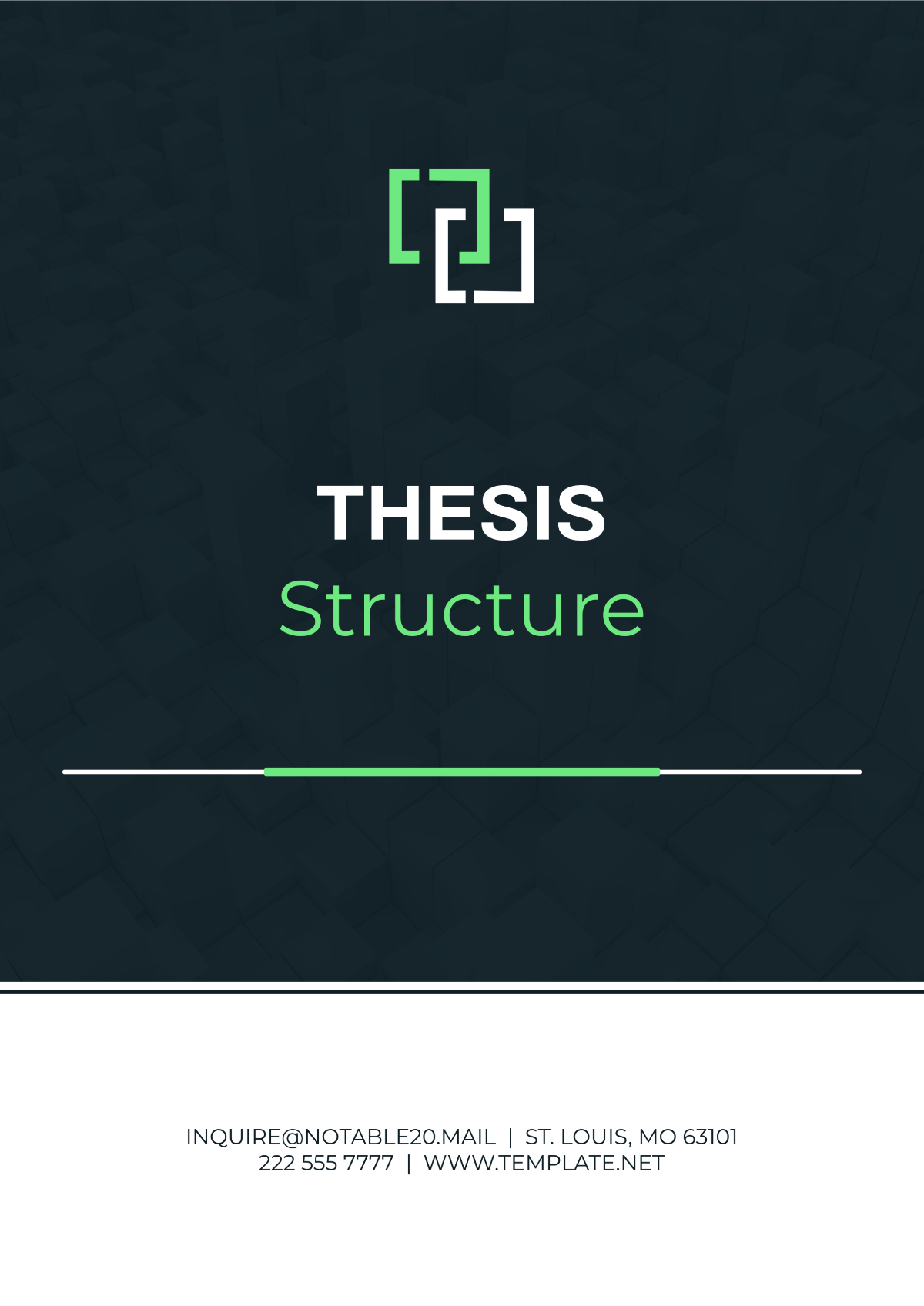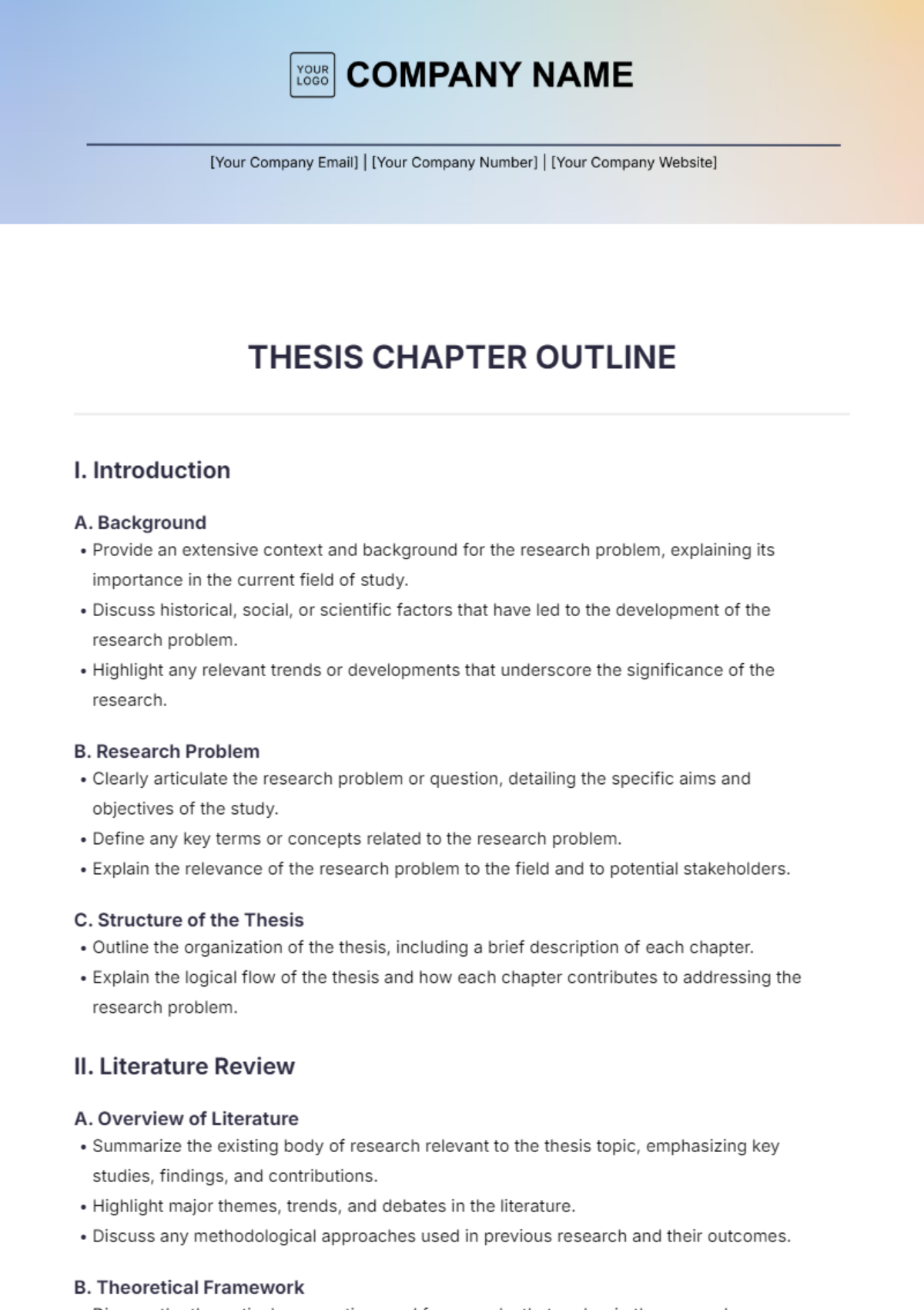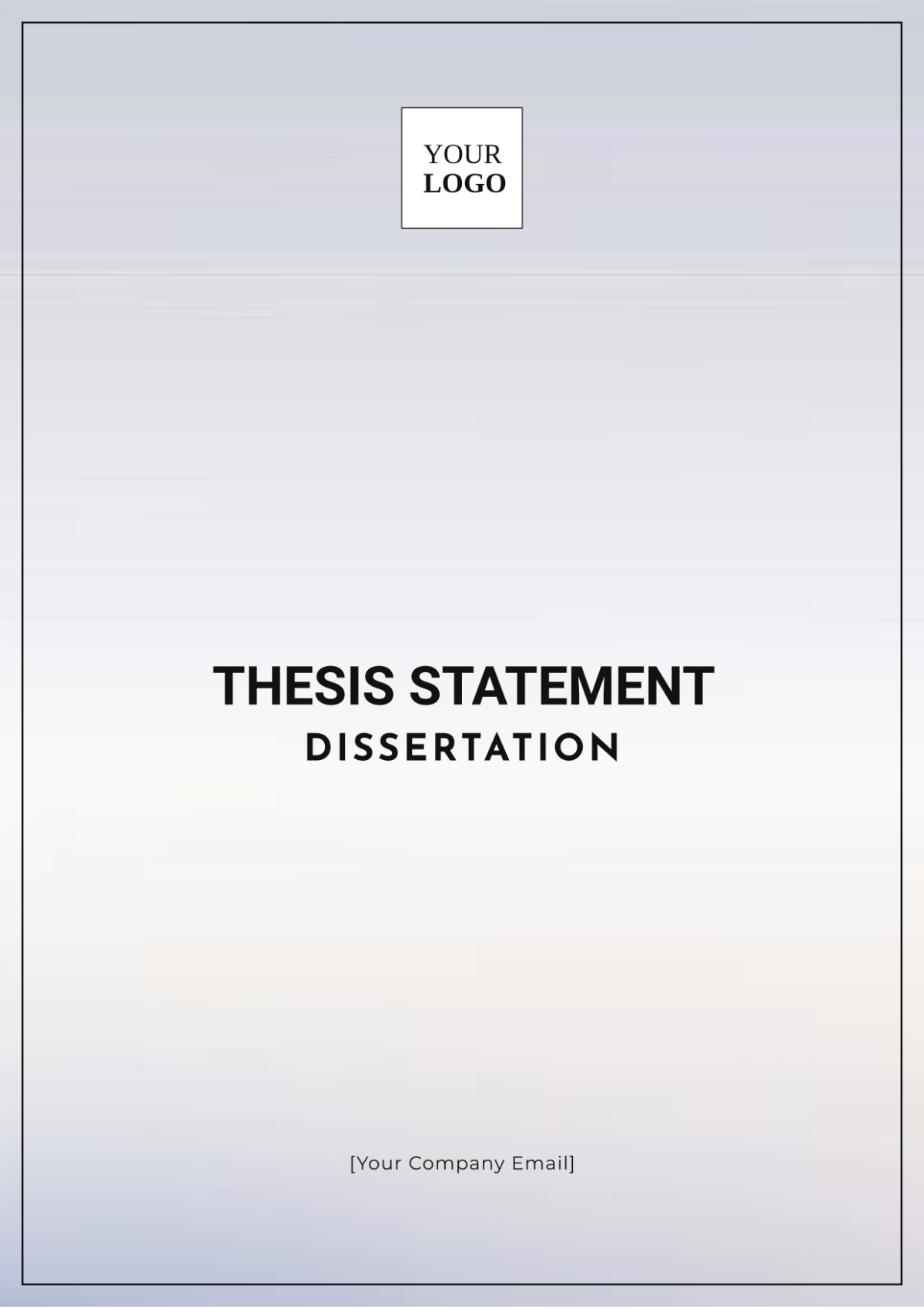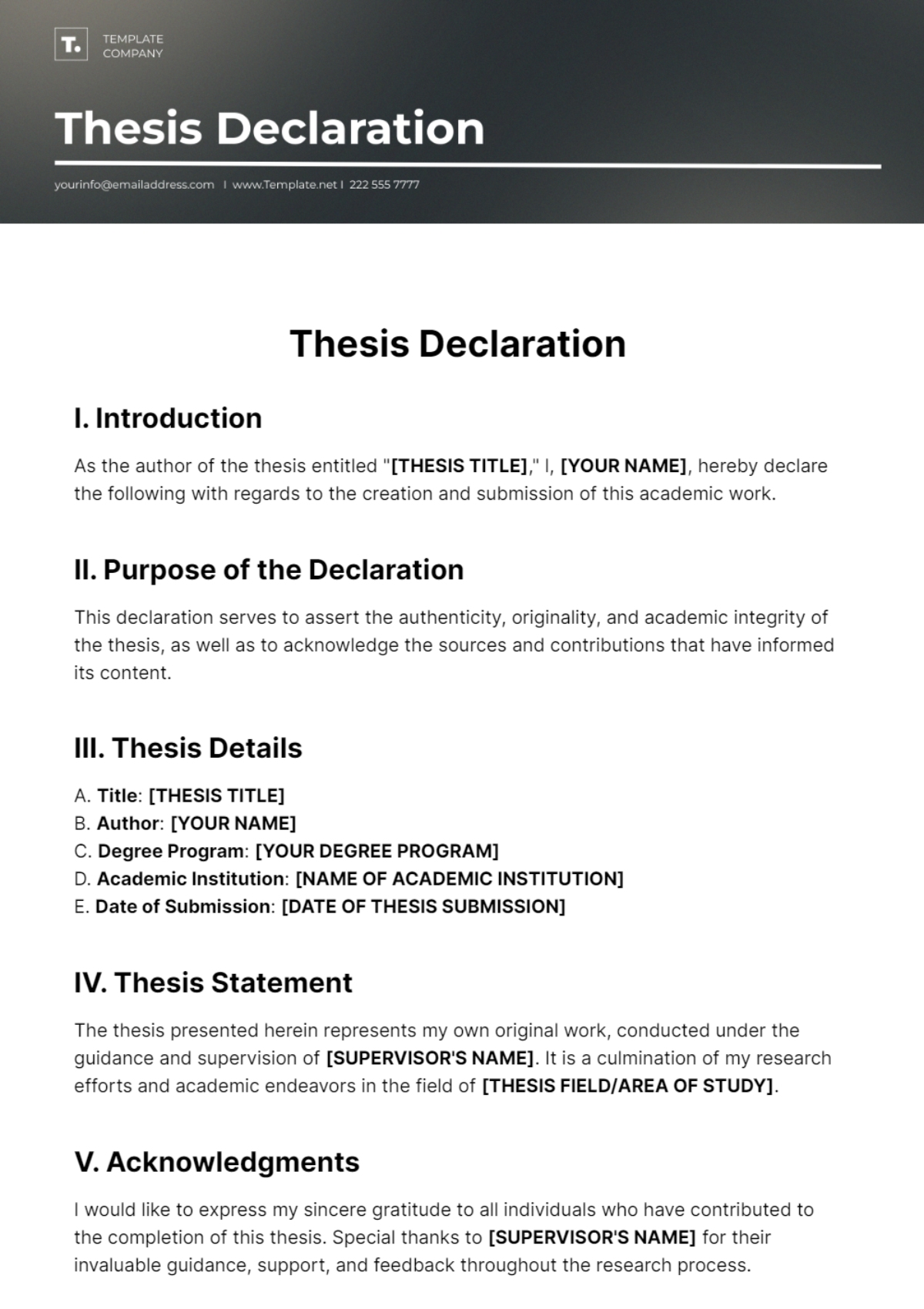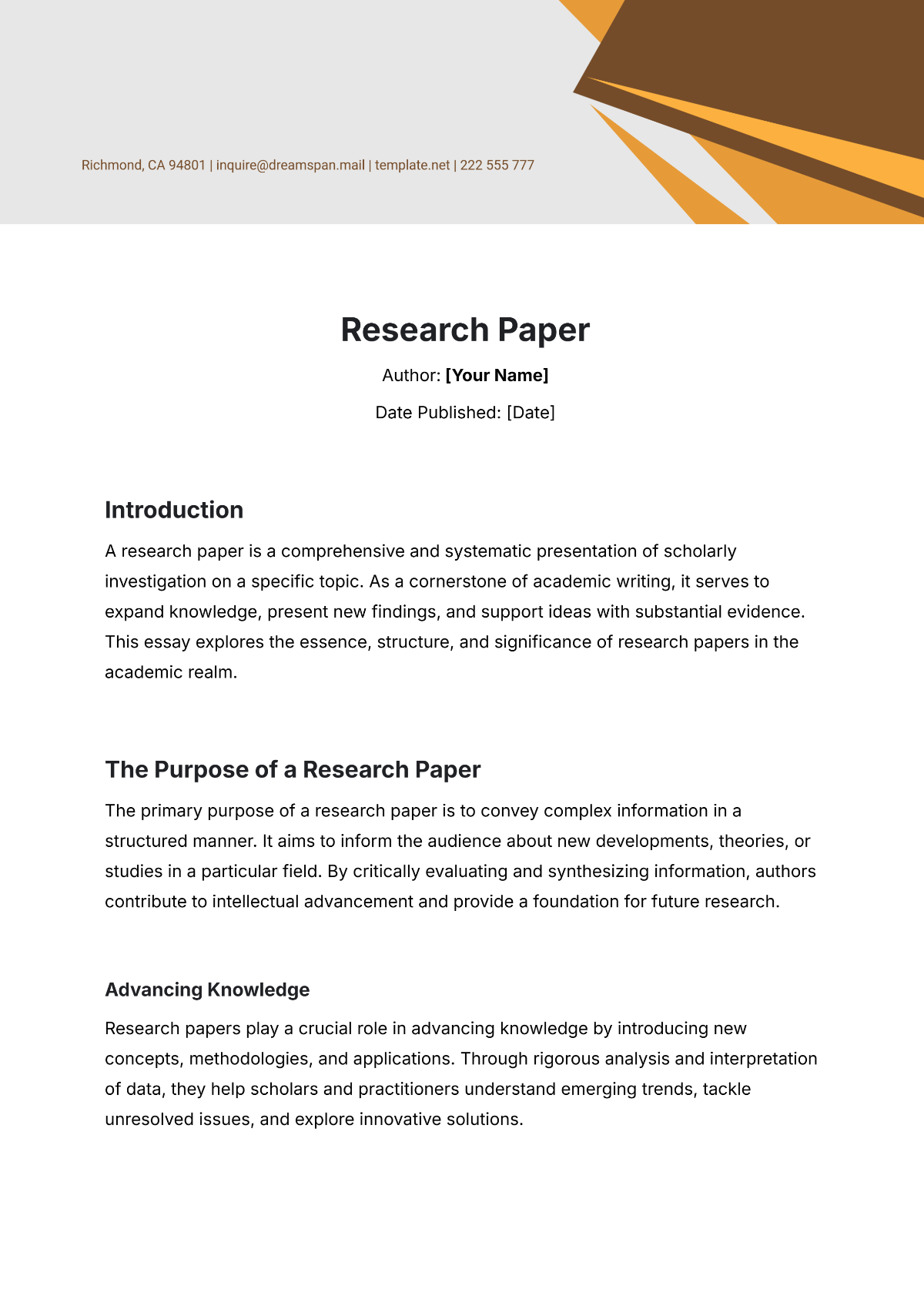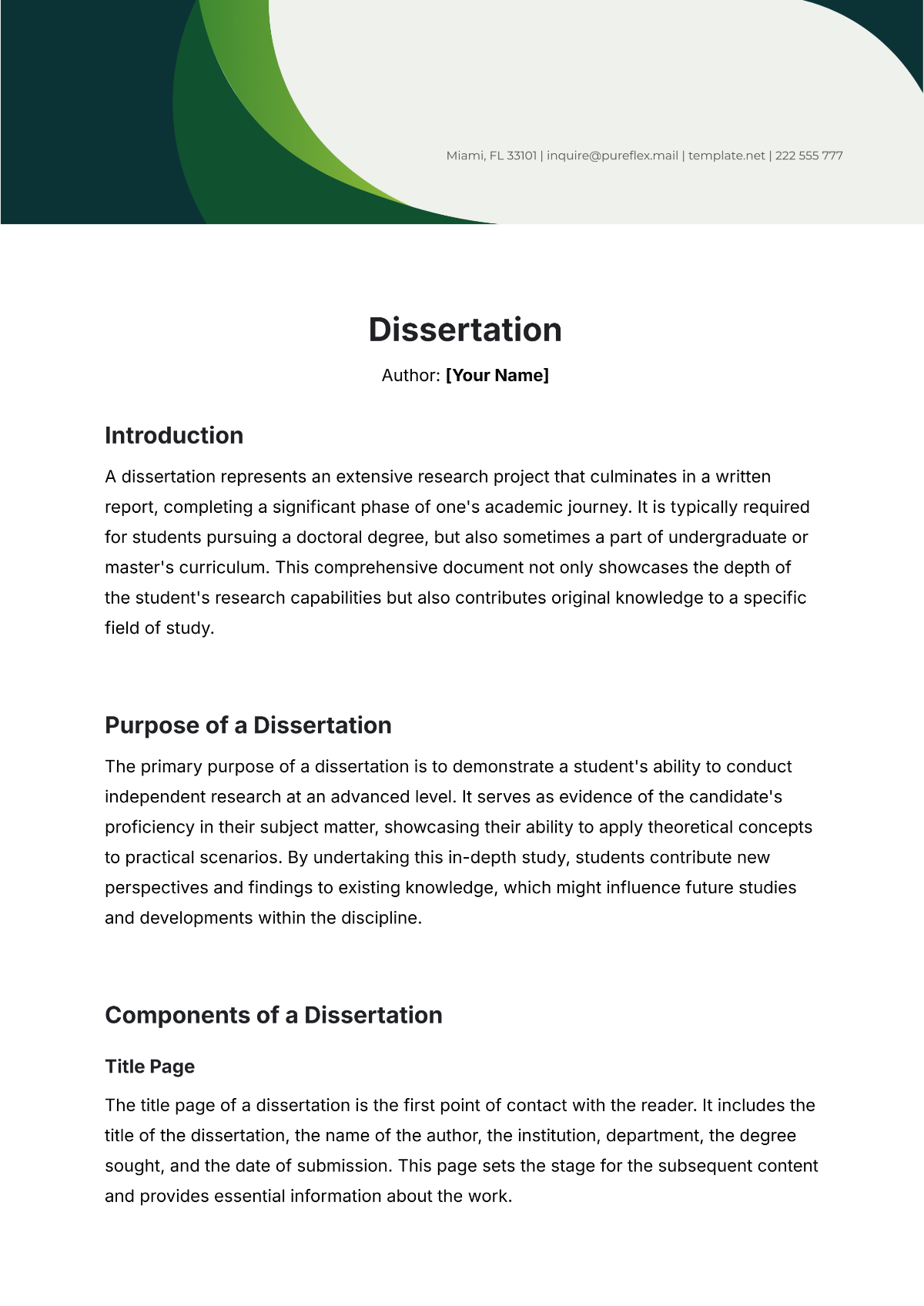Thesis
Author: [Your Name]
Date Published: [Date]
Introduction
In the realm of academia, few documents are as pivotal as the thesis. Serving as both a rite of passage and a testament to a scholar's expertise, the thesis encapsulates years of study, research, and dedication. This essay seeks to provide a comprehensive understanding of what constitutes a thesis, its essential components, and its overarching significance in academic and professional contexts.
Definition and Purpose of a Thesis
A thesis is an extensive written document that presents the research and findings of a candidate pursuing a higher degree, typically a master's or doctorate. It serves a dual purpose: to contribute new knowledge to the field and to demonstrate the candidate's ability to conduct independent research. By engaging with a specific research question, the thesis underscores the scholar's capability to critically analyze data and synthesize information in a coherent and structured manner.
Components of a Thesis
A standard thesis is composed of several critical components, each serving a unique function in presenting the research comprehensively.
Title and Abstract
The title should succinctly convey the thesis's scope and focus, while the abstract provides a brief summary of the research, including the main findings and conclusions. The abstract functions as a snapshot, enabling readers to quickly grasp the essence of the study.
Introduction
The introduction sets the stage for the thesis by outlining the research problem, objectives, and significance. It offers background information to contextualize the study and articulate the research questions or hypotheses that guide the investigation.
Literature Review
This section involves a comprehensive examination of existing literature related to the research topic. It highlights previous studies, identifies gaps in knowledge, and establishes the theoretical framework underpinning the research.
Methodology
The methodology section details the research design, data collection methods, and analytical techniques employed. It is crucial for ensuring the study's replicability and validating the research process.
Results
In this section, the researcher presents the data and findings of the study. It typically includes tables, figures, and descriptive statistics to effectively communicate the results.
Discussion
The discussion interprets the findings, drawing connections between the results and the research questions. It also examines the implications of the study, acknowledges limitations, and suggests avenues for future research.
Conclusion
The conclusion synthesizes the main findings and underscores the contribution to the field. It reiterates the significance of the study and offers concluding thoughts that reflect on its future impact.
Significance of a Thesis
The thesis is more than a mere academic requirement; it is a culmination of a scholar's academic journey, demonstrating mastery and deep understanding of a subject area. It serves as a springboard for future research and professional opportunities, often influencing practices and policies within the field.
Conclusion
A thesis stands as a testament to scholarly excellence and intellectual rigor. By meticulously exploring a research problem, the thesis not only advances knowledge but also prepares scholars for future endeavors in academia and beyond. Its structured approach and comprehensive nature make it an indispensable component of higher education.
